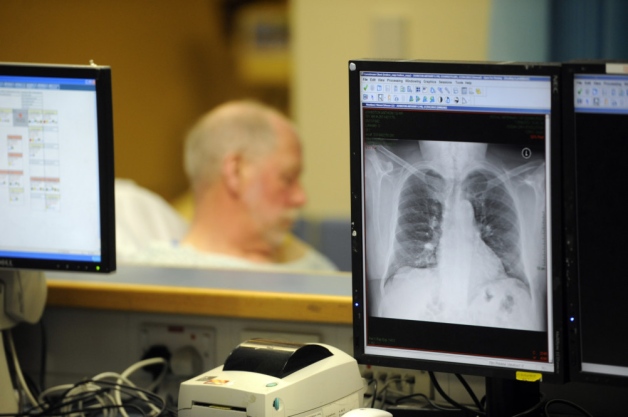Licensure Portability Grant Program
This announcement solicits applications for the Licensure Portability Grant Program (LPGP).
The primary purpose of the LPGP is to provide support for State professional licensing boards to carry out programs under which licensing boards of various States cooperate to develop and implement State laws and related policies that will reduce statutory and regulatory barriers to telemedicine.
The program is designed to leverage the experience of State licensing boards that have a strong record of implementing cross-border activities to overcome licensure barriers to the provision of telemedicine services across many States.
The program is designed to encourage recipients to gather information on best practices and identify and carry out strategies for sharing information on successful approaches on cross-State licensures related to telemedicine with other States, stakeholders, and the public.
It is anticipated that recipients under this program will provide information on emerging policy changes by licensure bodies that have relevance to telehealth.
As well, recipients will be expected to develop multi-State efforts along a continuum of activities from uniform applications to multi-Sate licensure compacts which have shown to be effective from past efforts under this program authority.
While this program’s statute refers to telemedicine, for the purposes of this announcement, the terms telemedicine and telehealth are used interchangeably.
Health care delivery patterns do not always conform uniformly with State boundaries, particularly in the delivery of telemedicine services (where care may be provided at a distance from the patient).
Accordingly, there are often situations in which a provider in one State is delivering services to a patient in another State.
Clinical practice is regulated through State licensure bodies and providers are required to be licensed in the State in which the patient is located.
The challenge for stakeholders is how to balance ensuring the safety of patients within the existing licensure system in a manner that also takes into account the growing use of telehealth technology to improve access to care for needed services in an efficient manner.
Licensure portability is seen as one of the key elements among the wide range of strategies needed to improve access to quality health care services through the deployment of telehealth and other electronic practice services (e-care or e-health services) in this country.
Licensure portability goes beyond improving the efficiency and effectiveness of electronic practice services.
Overcoming unnecessary licensure barriers to cross-State practice is seen as part of a general strategy to expedite the mobility of health professionals in order to address workforce needs and improve access to health care services, particularly in light of increasing shortages of health care professionals in rural and other areas and increased demand for health care services.
It is also seen as a way of improving the efficiency of the licensing system in this country so that scarce resources may be better used in the disciplinary and enforcement activities of State boards, rather than in potentially duplicative licensing processes.
This may also reduce the burden on health care providers who provide clinical services via telemedicine technology.
There is strong evidence to support the fact that certain medical and psychological specialties have been able to utilize cross-State licensure strategies to improve the quality of health care.
Previous LPGP award recipients have used this funding to develop uniform on-line applications HRSA-16-014 2 to be used by multiple States, allowing for a more efficient and less burdensome application process for physicians and psychologists seeking to be licensed in multiple States to provide services via telemedicine technology.
At a more strategic level, past LPGP award recipients have developed multi-State licensure compacts, greatly streamlining the process to license providers in multiple States.
This announcement solicits applications from a broad range clinical, non- clinical, counseling, and other licensing boards, including nursing and social work, who may utilize telehealth in the provision of services through initiatives such as uniform on-line applications and compacts,.
The primary purpose of the LPGP is to provide support for State professional licensing boards to carry out programs under which licensing boards of various States cooperate to develop and implement State laws and related policies that will reduce statutory and regulatory barriers to telemedicine.
The program is designed to leverage the experience of State licensing boards that have a strong record of implementing cross-border activities to overcome licensure barriers to the provision of telemedicine services across many States.
The program is designed to encourage recipients to gather information on best practices and identify and carry out strategies for sharing information on successful approaches on cross-State licensures related to telemedicine with other States, stakeholders, and the public.
It is anticipated that recipients under this program will provide information on emerging policy changes by licensure bodies that have relevance to telehealth.
As well, recipients will be expected to develop multi-State efforts along a continuum of activities from uniform applications to multi-Sate licensure compacts which have shown to be effective from past efforts under this program authority.
While this program’s statute refers to telemedicine, for the purposes of this announcement, the terms telemedicine and telehealth are used interchangeably.
Health care delivery patterns do not always conform uniformly with State boundaries, particularly in the delivery of telemedicine services (where care may be provided at a distance from the patient).
Accordingly, there are often situations in which a provider in one State is delivering services to a patient in another State.
Clinical practice is regulated through State licensure bodies and providers are required to be licensed in the State in which the patient is located.
The challenge for stakeholders is how to balance ensuring the safety of patients within the existing licensure system in a manner that also takes into account the growing use of telehealth technology to improve access to care for needed services in an efficient manner.
Licensure portability is seen as one of the key elements among the wide range of strategies needed to improve access to quality health care services through the deployment of telehealth and other electronic practice services (e-care or e-health services) in this country.
Licensure portability goes beyond improving the efficiency and effectiveness of electronic practice services.
Overcoming unnecessary licensure barriers to cross-State practice is seen as part of a general strategy to expedite the mobility of health professionals in order to address workforce needs and improve access to health care services, particularly in light of increasing shortages of health care professionals in rural and other areas and increased demand for health care services.
It is also seen as a way of improving the efficiency of the licensing system in this country so that scarce resources may be better used in the disciplinary and enforcement activities of State boards, rather than in potentially duplicative licensing processes.
This may also reduce the burden on health care providers who provide clinical services via telemedicine technology.
There is strong evidence to support the fact that certain medical and psychological specialties have been able to utilize cross-State licensure strategies to improve the quality of health care.
Previous LPGP award recipients have used this funding to develop uniform on-line applications HRSA-16-014 2 to be used by multiple States, allowing for a more efficient and less burdensome application process for physicians and psychologists seeking to be licensed in multiple States to provide services via telemedicine technology.
At a more strategic level, past LPGP award recipients have developed multi-State licensure compacts, greatly streamlining the process to license providers in multiple States.
This announcement solicits applications from a broad range clinical, non- clinical, counseling, and other licensing boards, including nursing and social work, who may utilize telehealth in the provision of services through initiatives such as uniform on-line applications and compacts,.
Agency: Department of Health and Human Services
Office: Health Resources and Services Administration
Estimated Funding: $500,000
Office: Health Resources and Services Administration
Estimated Funding: $500,000
Obtain Full Opportunity Text:
Not Available
Additional Information of Eligibility:
Eligible applicants are limited by statute to State professional licensing boards.
Foreign entities are not eligible for HRSA awards, unless the authorizing legislation specifically authorizes awards to foreign entities or the award is for research.
This exception does not extend to research training awards or construction of research facilities.
Full Opportunity Web Address:
Contact:
Department of Health and Human Services, Health Resources and Services Administrationaoliver@hrsa.gov
Agency Email Description:
Contact Anthony Oliver at (301)443-2919 or email aoliver@hrsa.gov
Agency Email:
aoliver@hrsa.gov
Date Posted:
2015-11-17
Application Due Date:
2016-01-19
Archive Date:
2016-03-14
Social Entrepreneurship
Spotlight
Social Enterprises: Key to Enhancing a Nation’s Health

Glasgow Caledonian University (GCU) has launched a series of noteworthy research projects to learn if social enterprises can help Scotland lose its “sick man of Europe” label and boost the nation’s overall health.

